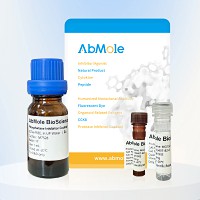
Expression host: HEK293 cells
Molecular weight: Human CD19 Protein contains 271 amino acids and has a predicted theoretical molecular weight of 31.8 kD
Molecular aliases: CD19, B4, CVID3, MGC12802
Purity: ≥95% Was analyzed by SDS-PAGE gel and HIGH performance liquid chromatography
Endotoxin: < 0.1EU/μg
Storage and stability: Freeze-dried samples can be stored at 4℃ for 24 months, dissolved liquid can be stored at -20℃ for 6-12 months, and avoid repeated freeze-thaw
Bioactivity: The B lymphocyte antigen CD19, also known as Cluster of.erention 19(CD19), is a one-way type I membrane protein containing two ig-Likec2-type (.globulin-like) domains. CD19 was expressed in follicular dendritic cells and B cells. In fact, it is present on B cells, from early recognized B line cells during development to B cell mother cells, but lost to plasma cells at maturity. It primarily acts as a B cell co-receptor with CD21 and CD81. Upon activation, the cytoplasmic tail of CD19 is phosphorylated, leading to the binding of SrC-family kinases and recruitment of Pi-3 kinase. As with T cells, some surface molecules form antigenic receptors that form complexes on B lymphocytes. Most B-cell specific CD19 phosphoglycoproteins are one of these molecules, the others are CD21 and CD81. These surface immunoglobulin (sIg) -associated molecules promote signal transduction. On living B cells, anti-immunoglobulin antibodies mimic exogenous antigens to bind CD19 to and internalize sIg. The opposite process has not been confirmed, suggesting that the formation of this receptor complex is antigen-induced. This combination of molecules has been confirmed by chemical studies. Mutations in CD19 are associated with severe immunodeficiency syndrome, which is characterized by reduced antibody production. CD19 has been shown to interact with CD81, CD82, complement receptor 2, and VAV2.
| Storage |
Powder -20°C 3 years ; 4°C 2 years In solvent -80°C 6 months ; -20°C 1 month |
| Species | Mouse | Rat | Rabbit | Guinea pig | Hamster | Dog |
| Weight (kg) | 0.02 | 0.15 | 1.8 | 0.4 | 0.08 | 10 |
| Body Surface Area (m2) | 0.007 | 0.025 | 0.15 | 0.05 | 0.02 | 0.5 |
| Km factor | 3 | 6 | 12 | 8 | 5 | 20 |
| Animal A (mg/kg) = Animal B (mg/kg) multiplied by | Animal B Km |
| Animal A Km |
For example, to modify the dose of Compound A used for a mouse (20 mg/kg) to a dose based on the BSA for a rat, multiply 20 mg/kg by the Km factor for a mouse and then divide by the Km factor for a rat. This calculation results in a rat equivalent dose for Compound A of 10 mg/kg.
[1] Ruihao Huang, et al. J Hematol Oncol. Recent advances in CAR-T cell engineering
[2] Carl H June, et al. N Engl J Med. Chimeric Antigen Receptor Therapy
[3] Michel Sadelain, et al. Nature. Therapeutic T cell engineering
[4] Kathrin Pieper, et al. J Allergy Clin Immunol. B-cell biology and development
| Related Recombinant Proteins Products |
|---|
| Recombinant Human Serpin A12 (E.coli, N-GST)
Vaspin (Visceral Adipose-Specific SERPIN) is a newly described adipokine. Vaspin is also a unique insulin sensitizing adipocytokine in obesity. |
| Recombinant Human B2M Protein (Mammalian, C-6His)
β-2-Microglobulin (B2M) is a secreted protein with 1 Ig-like C1-type (immunoglobulin-like) domain which belongs to the beta-2-microglobulin family. B2M may adopt the fibrillar configuration of amyloid in certain pathologic states. |
| Recombinant Mouse E-Selectin/CD62E Protein (HEK293)
E-selectin, also known as endothelial leukocyte adhesion molecule-1 (ELAM-1) and CD62E, is an inducible adhesion molecule that is expressed on the surfaces of stimulated vascular endothelial cells and is sometimes involved in cancer cell metastasis. |
| Recombinant Human DPP4/CD26 (Mammalian, C-6His)
DPP4/CD26 is a signal-anchor for type II membrane protein that belongs to the peptidase S9B family. DPP4/CD26 acts as a positive regulator of T-cell coactivation, by binding at least ADA, CAV1, IGF2R, and PTPRC. It’s binding to CAV1 and CARD11 induces T-cell proliferation and NF-kappa-B activation in a T-cell receptor/CD3-dependent manner. |
| Recombinant Human USP14 (E.coli, N-6His)
USP14 belongs to the ubiquitin-specific processing (USP) family which is a deubiquitinating enzyme (DUB) with His and Cys domains. USP14 acts also as a physiological inhibitor of endoplasmic reticulum-associated degradation (ERAD) under the non-stressed condition by inhibiting the degradation of unfolded endoplasmic reticulum proteins via interaction with ERN1. |


Products are for research use only. Not for human use. We do not sell to patients.
© Copyright 2010-2023 AbMole BioScience. All Rights Reserved.
